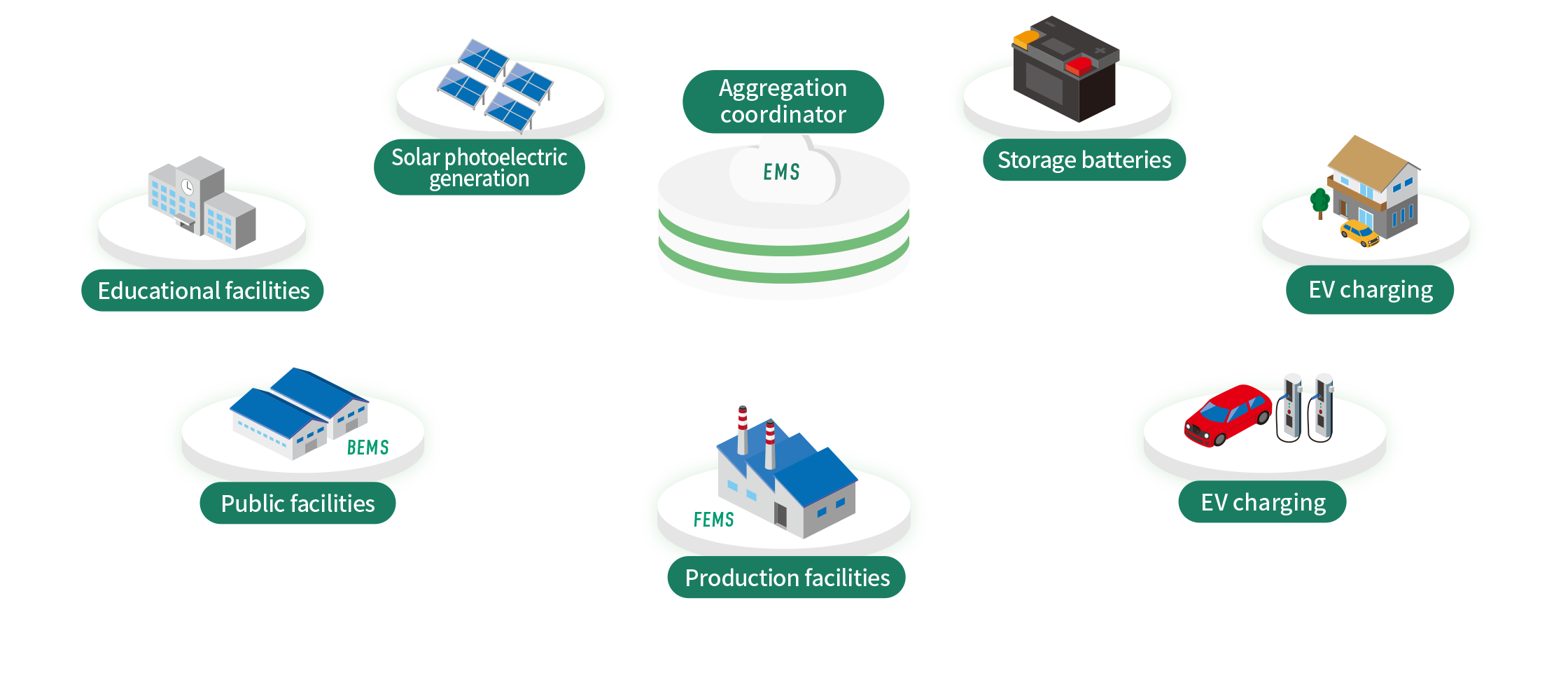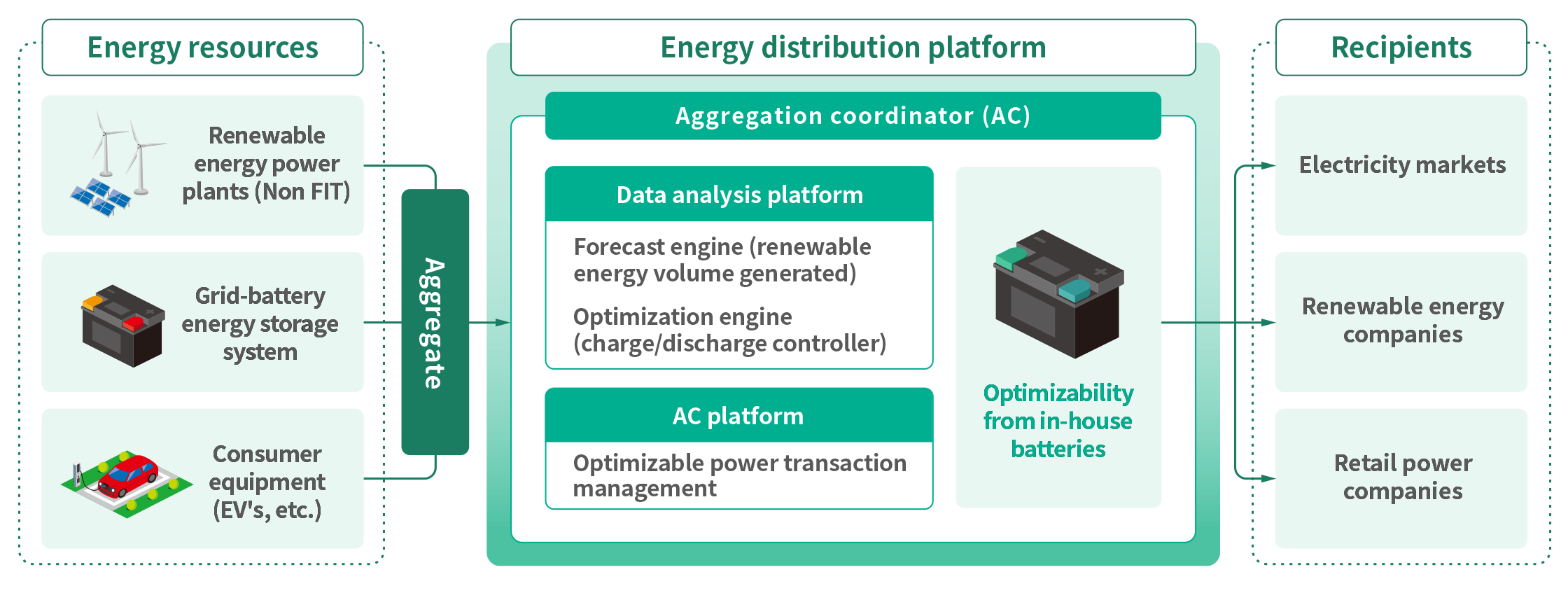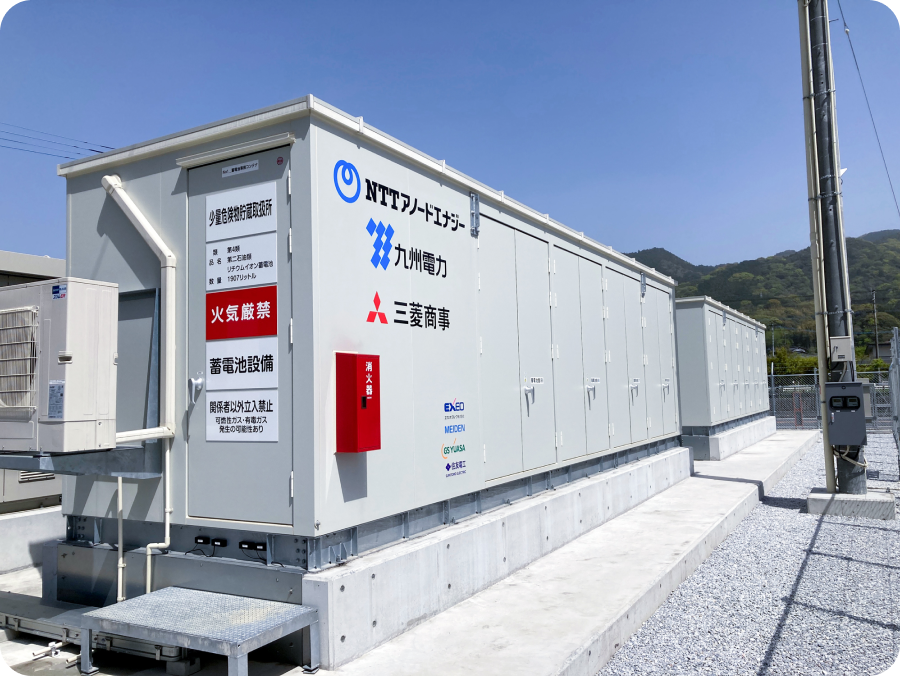Aggregation
"Optimizability" is required to maintain the balance between electricity supply and demand so that renewable energy can be promoted as a primary power source while addressing the amount of unstable power generation. NTT Anode Energy leverages the NTT Group's latest ICT-based energy solution platform to forecast the amount of electricity generated by renewable energies and the amount of energy used by customers. It controls the charge and discharge of grid-battery energy storage systems, EVs, and other devices to match the situation. We aim to simultaneously stabilize the power grid, reduce customer electricity cost, and supply electricity from renewable energy sources through optimal operation for the electricity markets, electricity retailers, and power generation companies.

Energy solution platform development
For aggregation, NTT Anode Energy is developing and operating an energy solution with grid storage stations platform to optimize the operation of energy resources and efficiently perform market transactions. The energy solution platform consists of an "AC platform" that receives market bids in addition to charge and discharge orders from the grid side and instructs energy resources to respond; a "forecast engine" that predicts the amount of renewable energy generation, market prices, and such; and an "optimization engine" that formulates the optimal charge and discharge plans for the grid batteries based on factors such as forecast data. By combining NTT Group's ICT with feedback from our accumulated experience and expertise in operating grid batteries, we will evolve a system that can efficiently perform transactions in a complex market environment.
Developing and operating the energy solution
- Develop forecast and optimization engines for high-level data analysis
- Aggregate dispersed energy resources and provide optimized electricity, etc. through the energy solution platform

Contributing to stabilizing the power system with grid storage stations
There are three types of electricity markets in Japan: the "capacity market" that trades the capacity to provide stable power; the "supply-demand adjustment market" that trades the capacity to fluctuate power in a short period of time; and the "wholesale power trading market," which trades the actual generated power. Grid-battery energy storage systems help stabilize the power system while ensuring profitability by optimally combining these three markets. For instance, they can charge batteries when solar photovoltaic generation and other means can produce a surplus of electricity and discharge them when power shortages occur. They are also planned to be used to reduce procurement risks from power exchanges for electricity retailers. We are currently promoting projects to develop grid-battery energy storage systems throughout Japan. For example, the Tagawa Power Station in Tagawa District, Fukuoka Prefecture was constructed in cooperation with Kyushu Electric Power Co., Inc. and Mitsubishi Corporation and is currently operating in market trading. We also plan to provide services for the optimal operation of energy resources for our customer's assets by utilizing our operational expertise accumulated through grid-battery energy storage systems.
